Panasonic Industrial Devices Europe provides testing and validation services tailored to complex automotive and industrial systems applications. With more than 25 years of experience, two very well equipped Reliability Assurance Centers (RACs), and a team of more than 70 specialized engineers, we ensure that all testing activities are conducted in accordance with customer specifications, applicable standards, and recognized norms—while maintaining full traceability and technical integrity.
Our processes are developed with reference to the requirements of ISO/IEC 17025 and ensure the validity of results, impartiality, and technical competence in all phases of testing. We support fast turnaround times without compromising the reliability, safety, or quality of your products in their intended operating environments.
We conduct environmental tests under controlled and traceable conditions to simulate real-world influences on your products. All test parameters are continuously monitored and documented to ensure data integrity and reproducibility.
Where required, we perform post-test physical analyses to assess the effects of environmental stress on your product. These evaluations are carried out based on your specifications and documented in a transparent and verifiable manner. All procedures are executed using calibrated equipment and validated methods, ensuring reliable and repeatable results that support your product’s qualification and compliance.
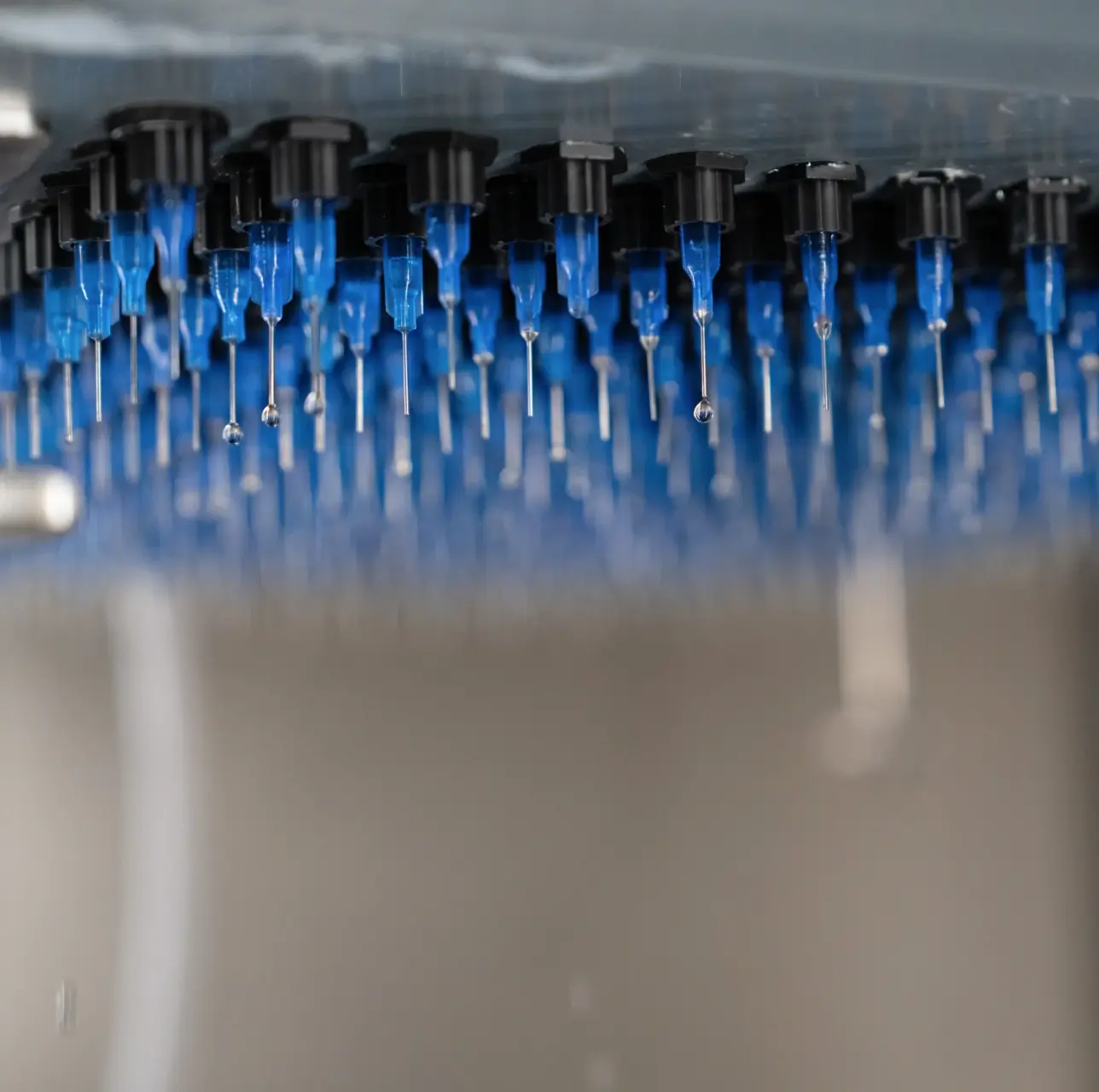
Our advanced thermal testing simulates extreme temperature shifts and condensation to ensure product durability and reliability. Using precision-controlled chambers and expert protocols, we identify vulnerabilities early, before they reach the field. This testing supports automotive, industrial, and consumer standards, delivering reproducible results that validate long-term performance under harsh environmental conditions.
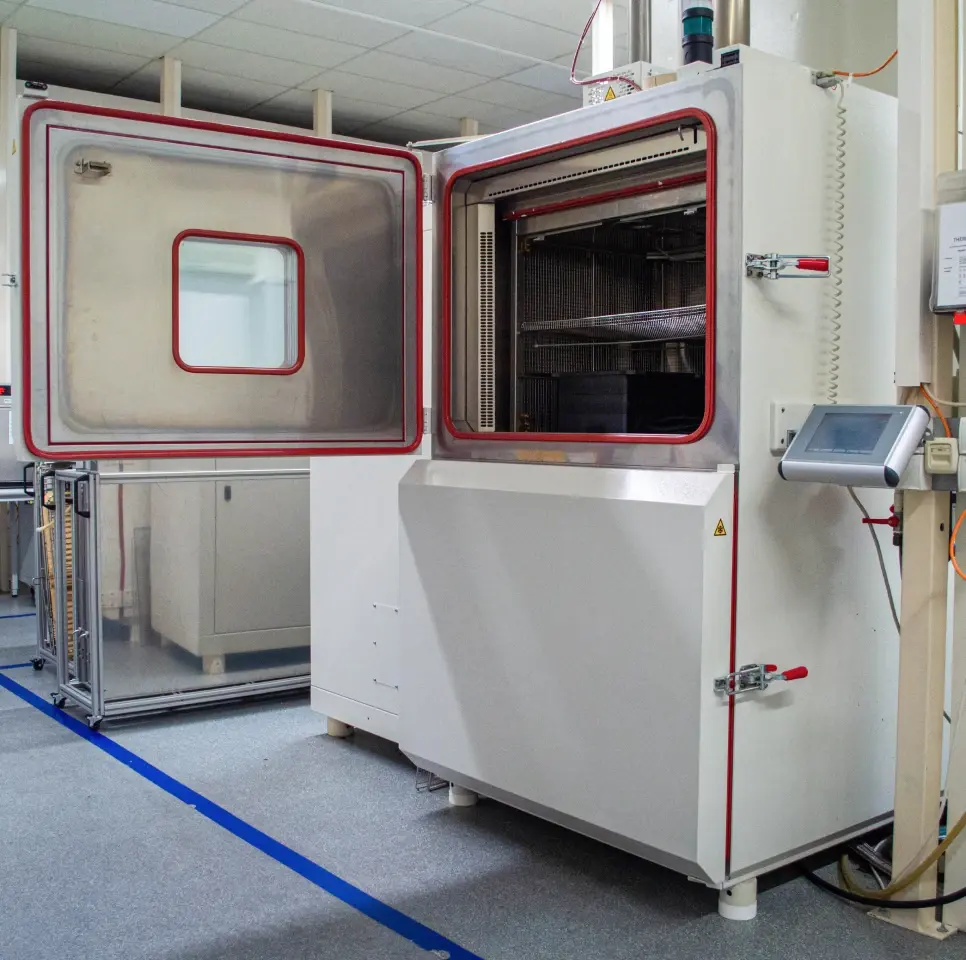
Our salt fog testing replicates aggressive environmental conditions to assess corrosion resistance across materials and coatings. With tightly controlled exposure cycles and expert analysis, we identify weaknesses before they impact product performance. This method supports automotive, industrial, and consumer standards, delivering consistent, actionable results that validate long-term durability in harsh, saline-rich environments.
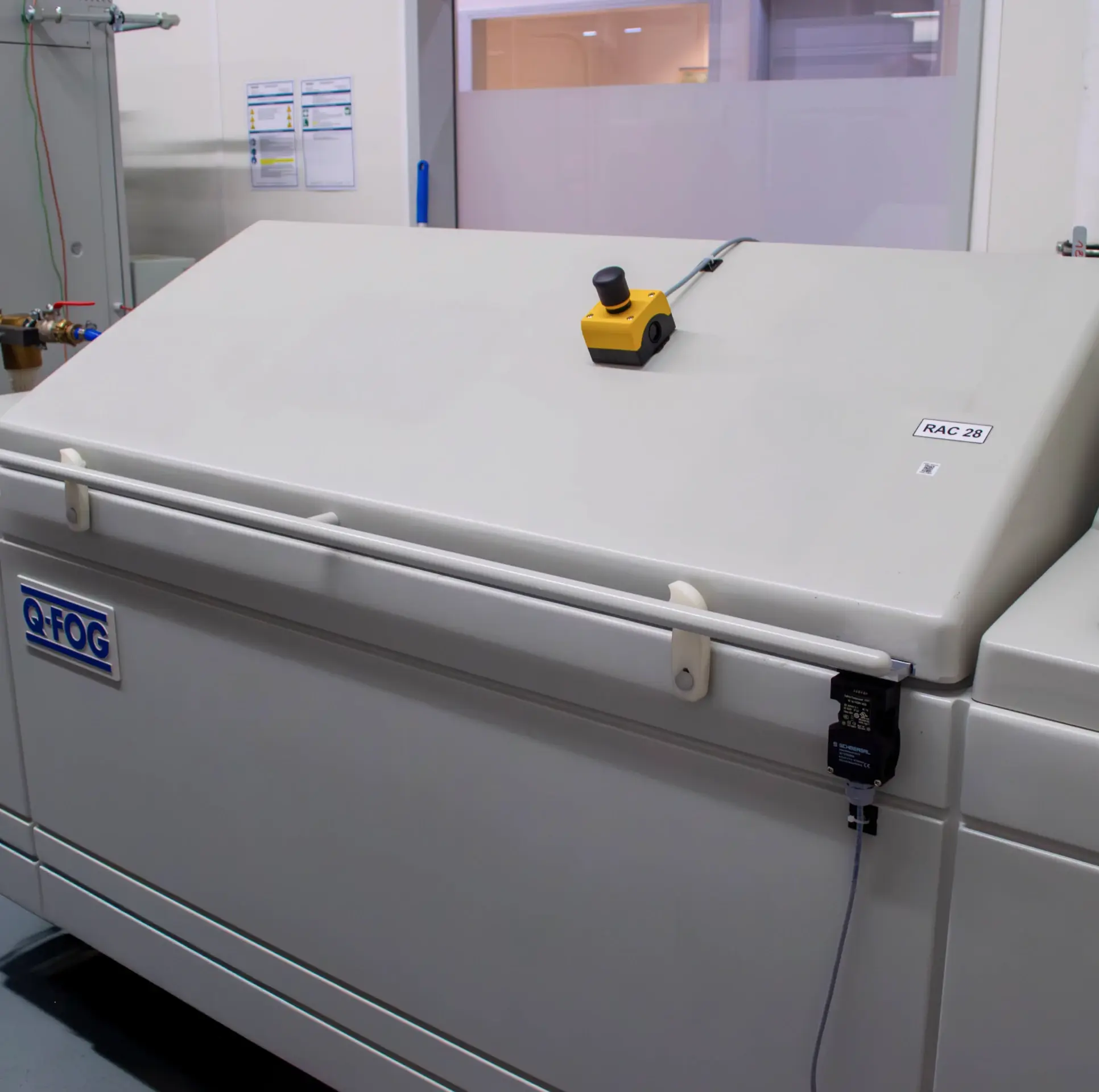
Our IP testing validates product resilience against dust and water intrusion, ensuring compliance with international standards up to IPX9K. Using calibrated equipment and rigorous procedures, we simulate real-world exposure, from fine dust particles to high-pressure, high-temperature water jets. The results deliver clear insights into enclosure integrity and long-term reliability across automotive, industrial, and device-specific applications.
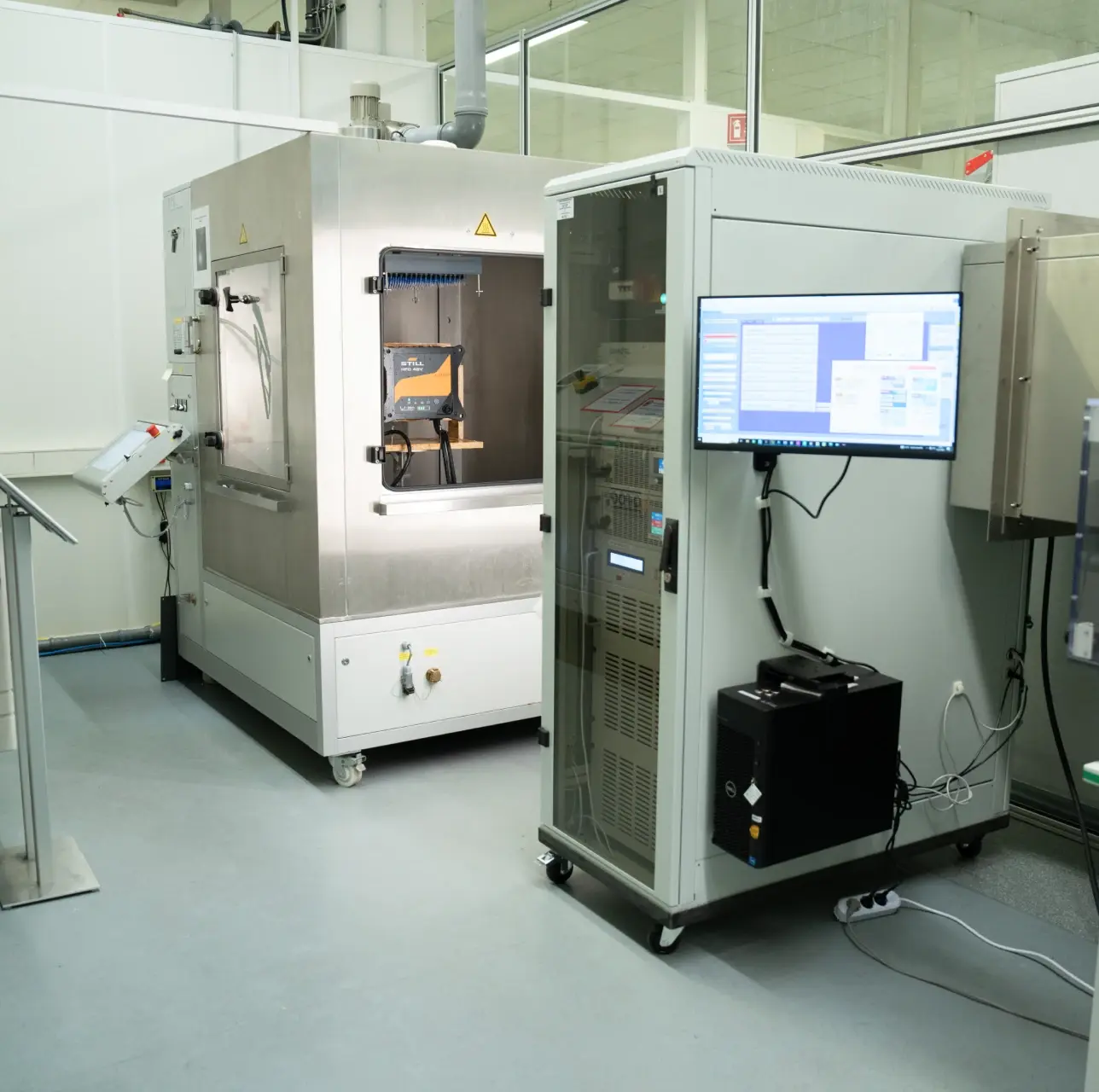
At Panasonic Industrial Devices Europe, mechanical durability testing is performed under controlled and reproducible conditions. Our procedures ensure the validity of results, traceability, and technical reliability throughout the testing process.
Our vibration and shock testing simulates real-world mechanical stresses to ensure product integrity under dynamic conditions. Using precision-controlled platforms and tailored test profiles, we expose components to rigorous vibration and impact scenarios. This process helps identify structural weaknesses early, supporting compliance with automotive, industrial, and consumer standards while validating long-term durability and performance.
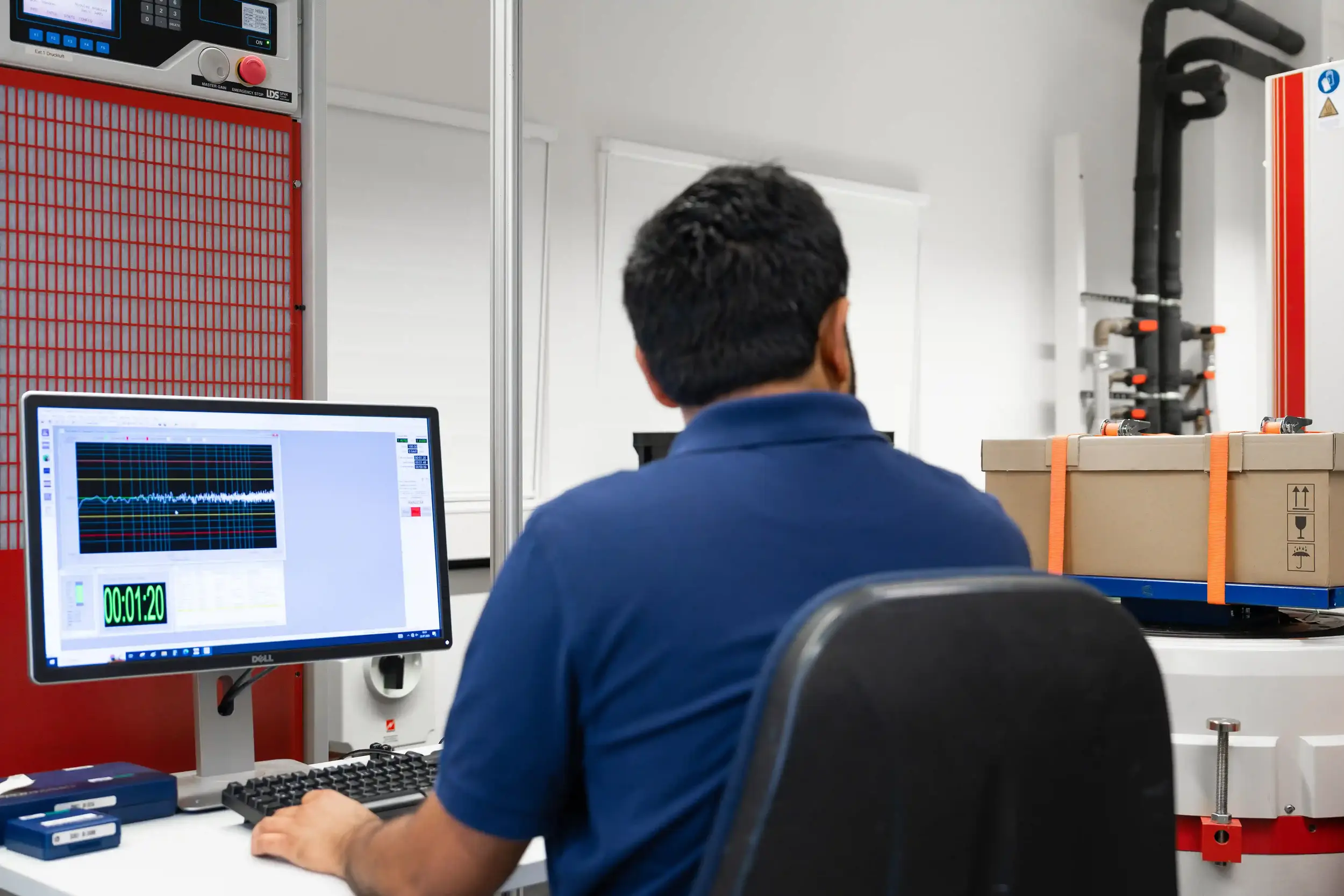
Our drop testing simulates accidental impacts during handling, transport, and everyday use to verify product robustness. Using drop towers and custom test setups, we assess structural integrity and functional reliability across a range of heights and orientations. This testing supports automotive and industrial standards, helping ensure your products withstand real-world shocks without compromise.
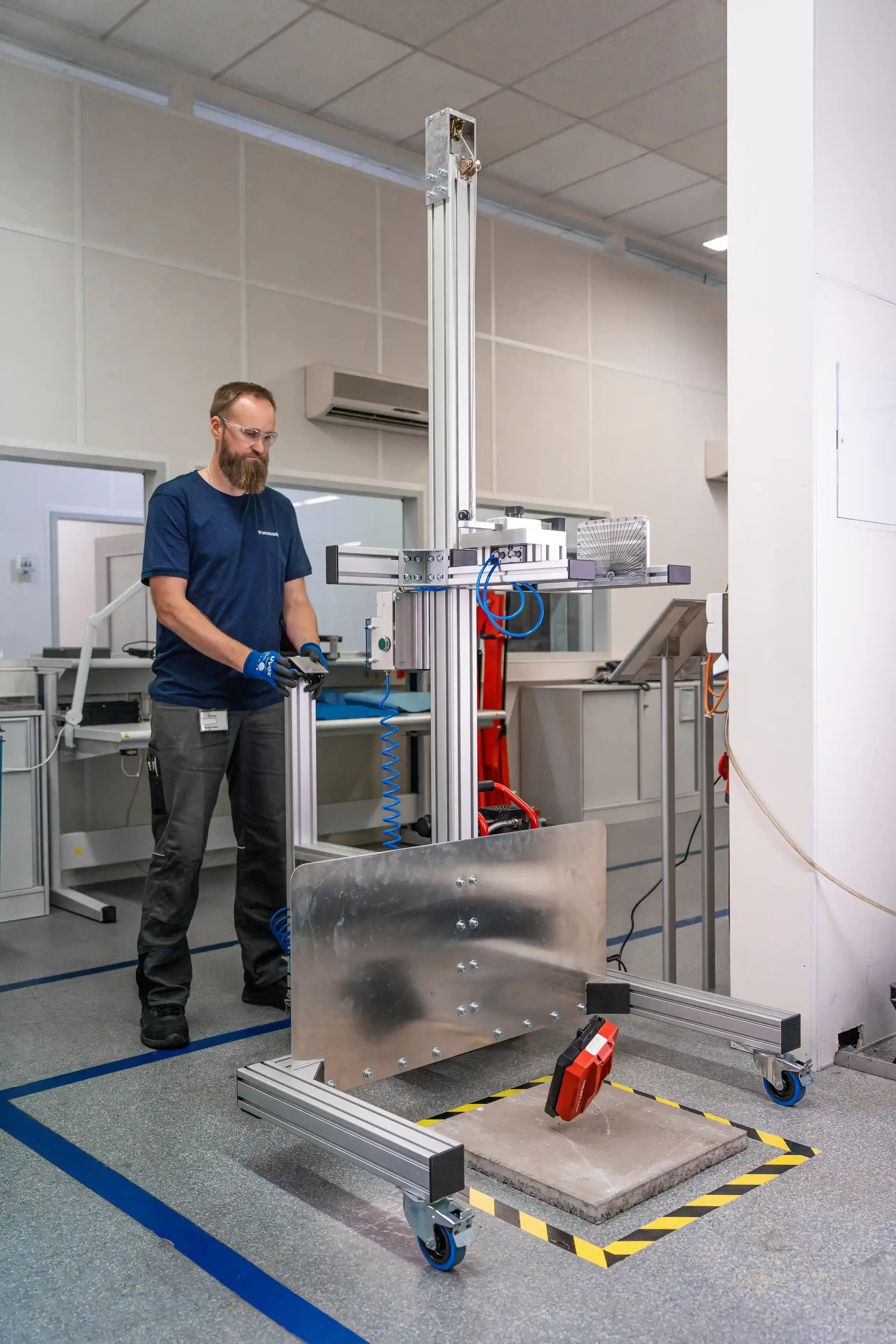
We perform high-precision torque and force testing to evaluate mechanical strength, joint integrity, and material behavior under load. Our setups accommodate a wide range of components and assemblies, enabling detailed analysis of axial forces. These measurements are essential for validating product performance in demanding automotive and industrial environments.
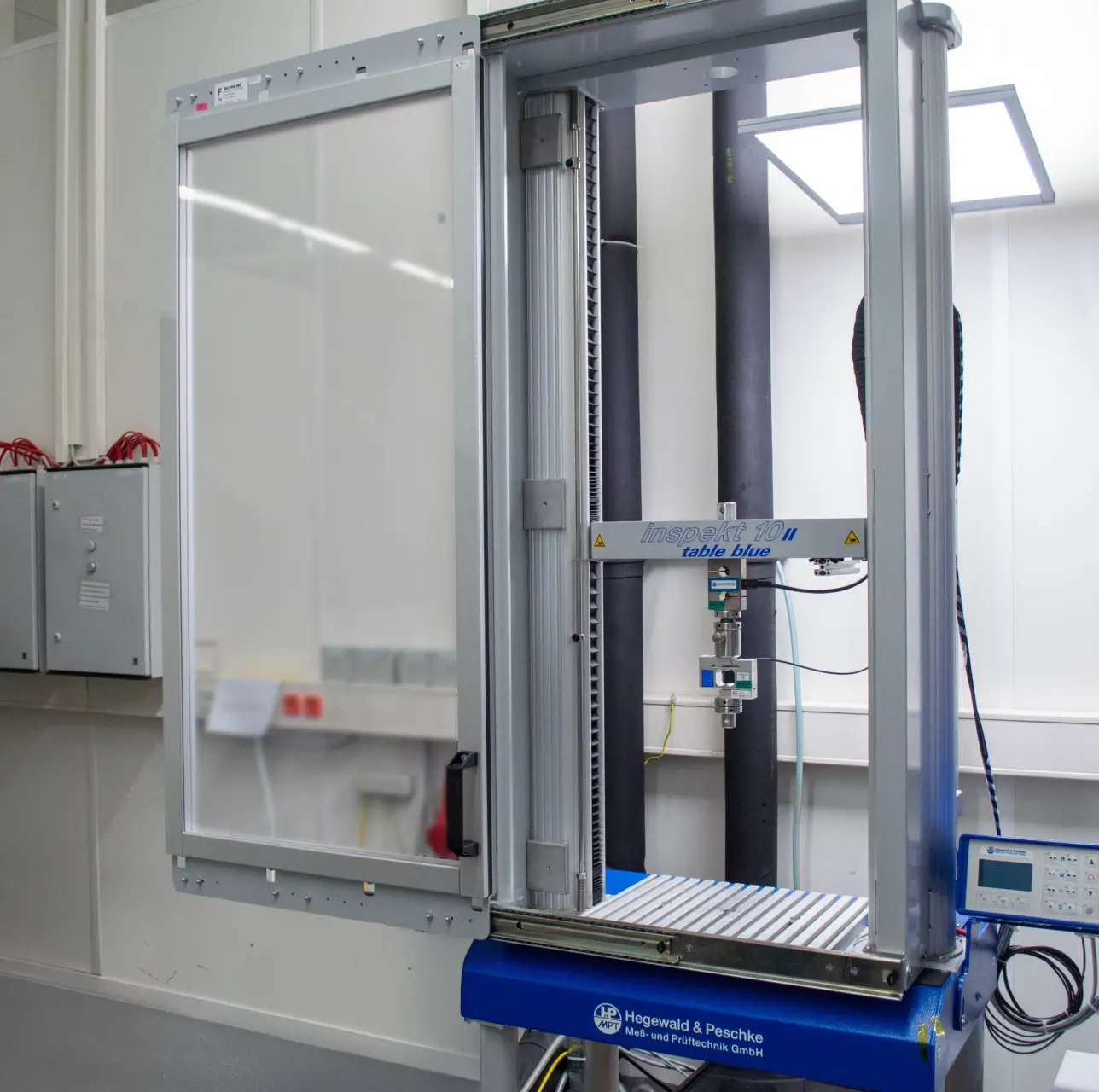
We design and implement bespoke mechanical test setups to match your exact application needs. Whether it’s replicating complex load scenarios, integrating unique fixtures, or simulating real-world conditions, our engineering team ensures every detail aligns with your product’s operational context. This flexibility enables accurate validation of performance and reliability in automotive and industrial environments.
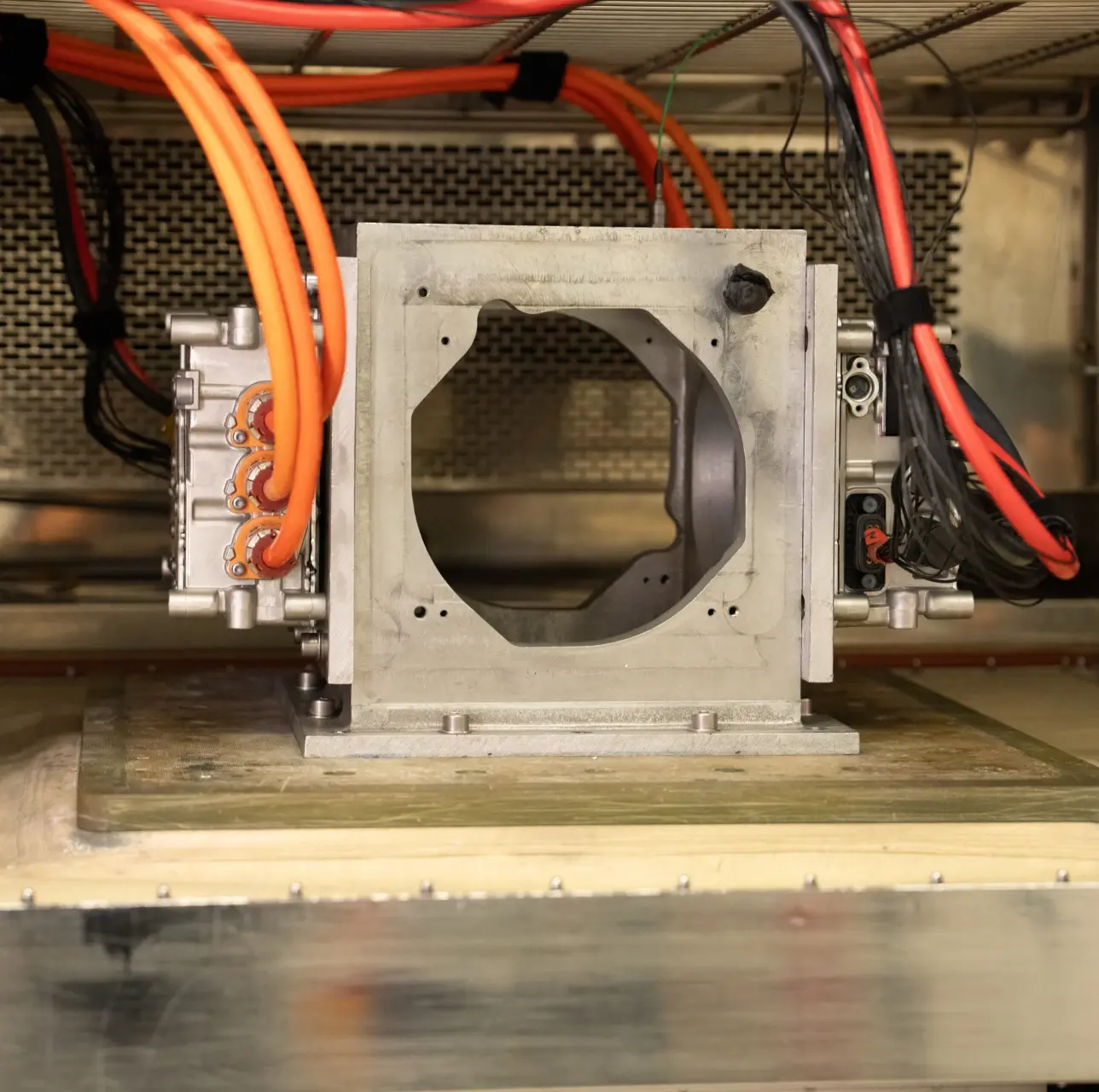
To accommodate product-specific scenarios, we collaborate closely with our clients to design and manufacture bespoke test setups in our modern in-house workshop. This ensures that the testing environment accurately reflects real-world conditions and meets the required standards.
Following test completion, we offer comprehensive post-test analysis using advanced material inspection technologies, including:
Our optical 3D scanning solutions deliver high-resolution geometry capture for precise dimensional analysis and quality assurance. Using GOM systems, we generate detailed digital models of components and assemblies—ideal for reverse engineering, deformation tracking, and inspection against CAD data. This non-contact method ensures fast, repeatable results across complex surfaces, supporting demanding automotive and industrial validation workflows.
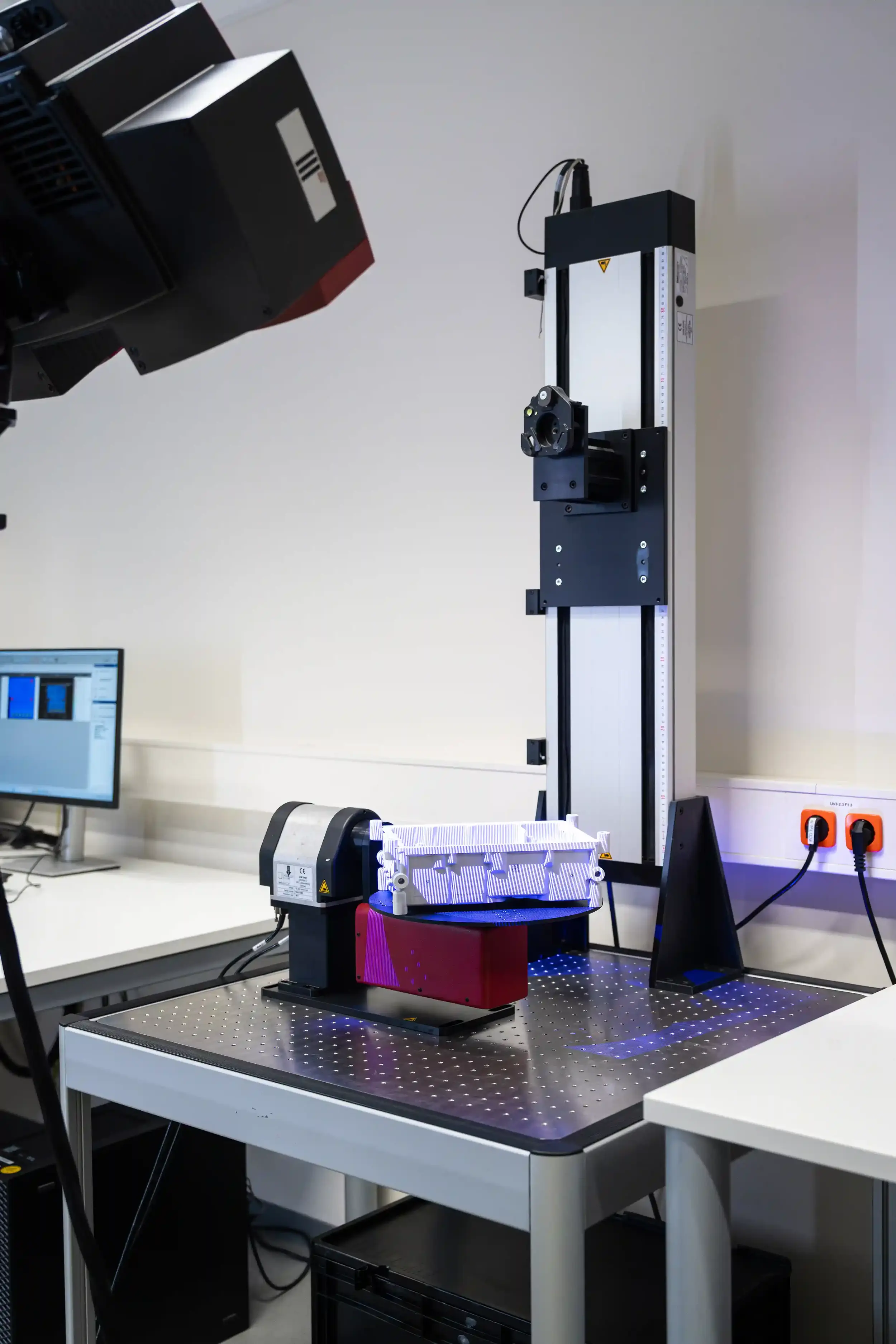
We offer high-resolution X-ray imaging to uncover internal structural details and detect hidden defects without damaging the product. This non-destructive method enables precise analysis of solder joints, component placement, and material integrity—especially valuable in electronics, automotive, and industrial applications. Our systems deliver sharp, reproducible results, supporting quality assurance, failure analysis, and advanced diagnostics across complex assemblies.
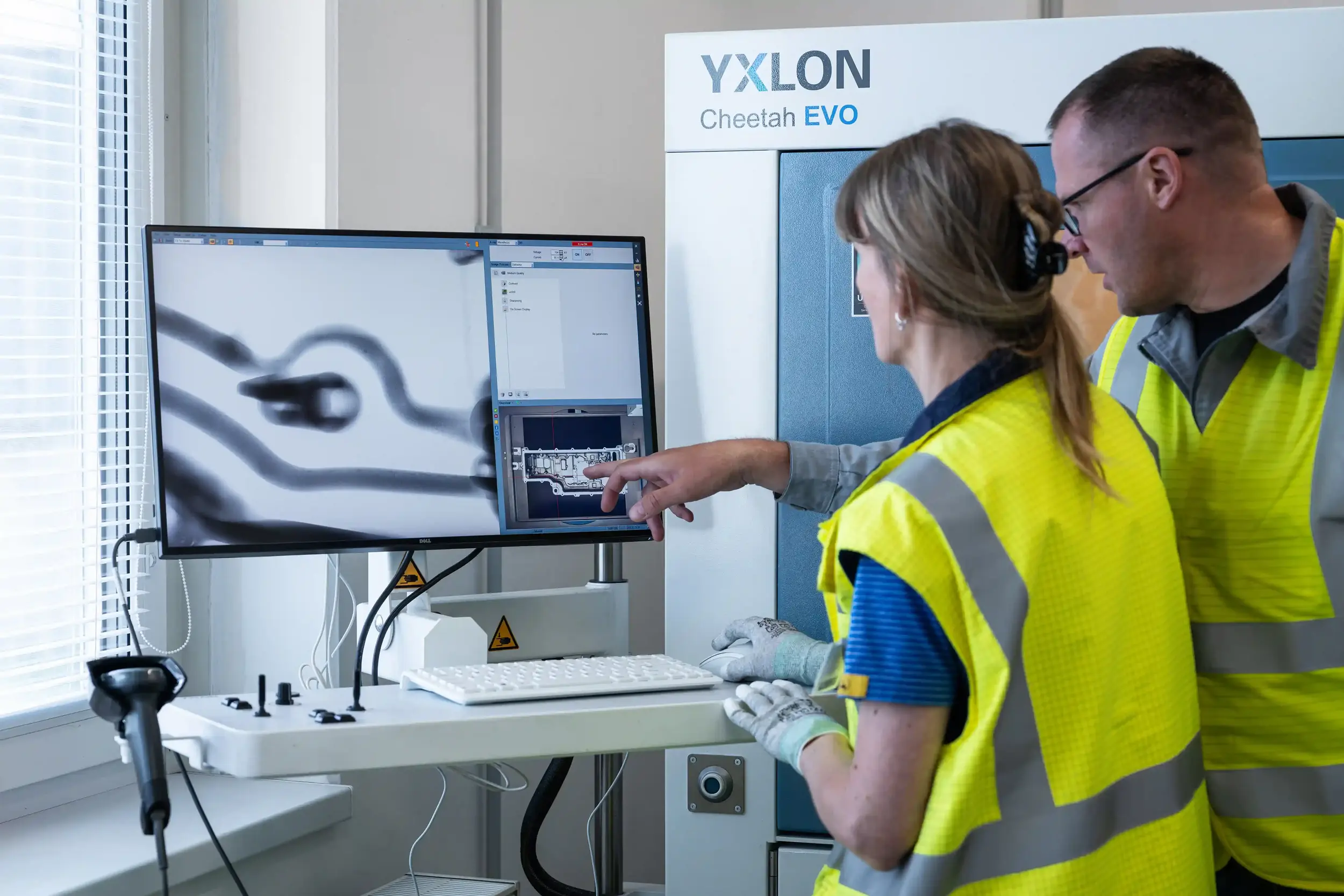
Our micrographic analysis focuses on the detailed examination of cross-section cutting edges and surface structures, delivering precise insights into material integrity and cleanliness. Through high-resolution microscopy and standardized evaluation protocols, we assess cutting edge geometry, surface finish, and contamination levels, including particle size, distribution, and fiber residues. This method ensures compliance with stringent automotive and industrial cleanliness standards, supporting reliable validation of component quality and adherence to defined technical specifications.
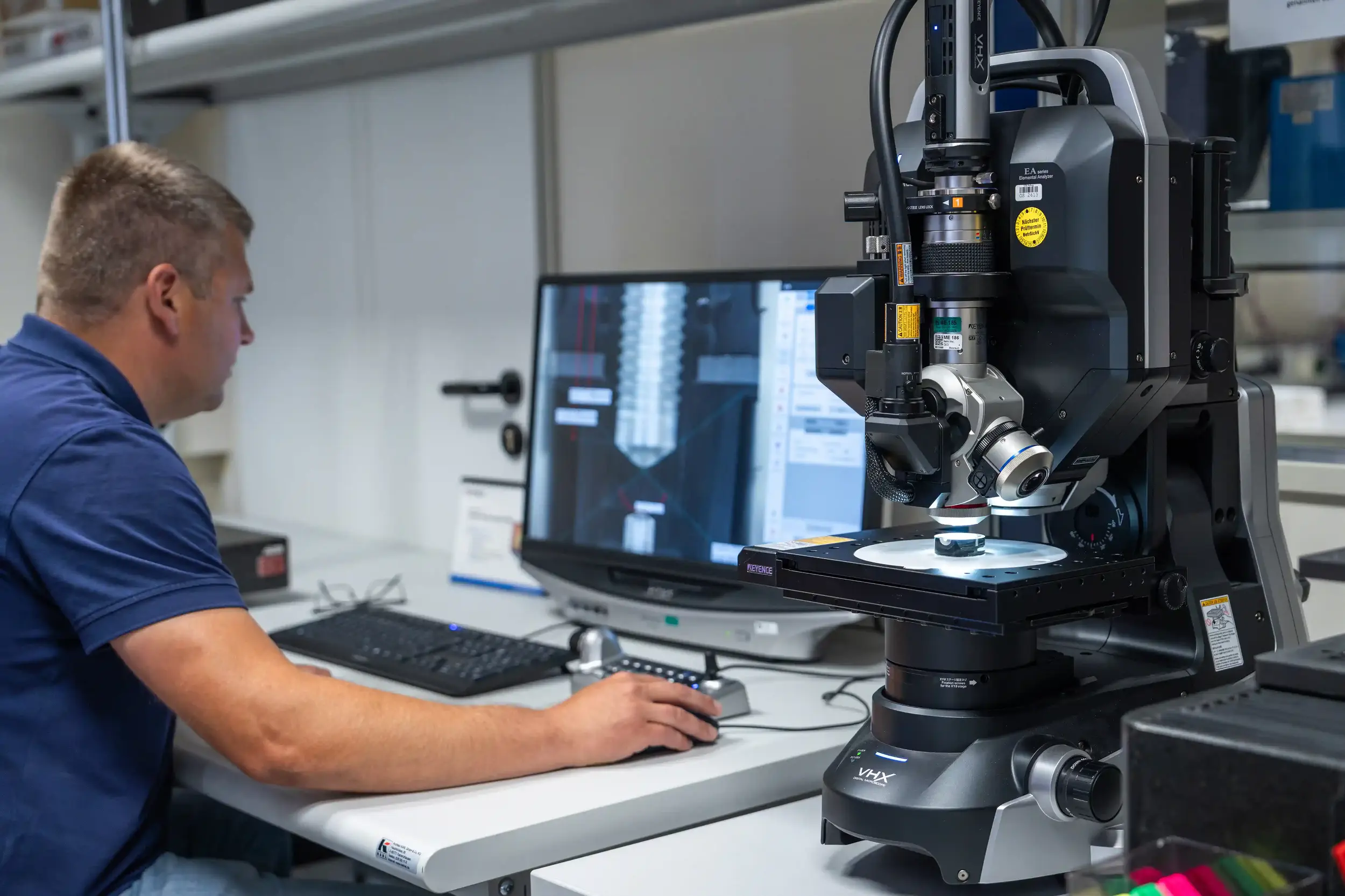
We perform detailed surface characterization to validate material integrity and functional performance. Using high-resolution optical systems and calibrated indentation methods, we quantify roughness parameters such as Sa and Rz, and assess mechanical resistance under load. These measurements support precise engineering decisions, ensuring reliable adhesion, thermal behavior, and long-term durability in automotive and industrial applications.
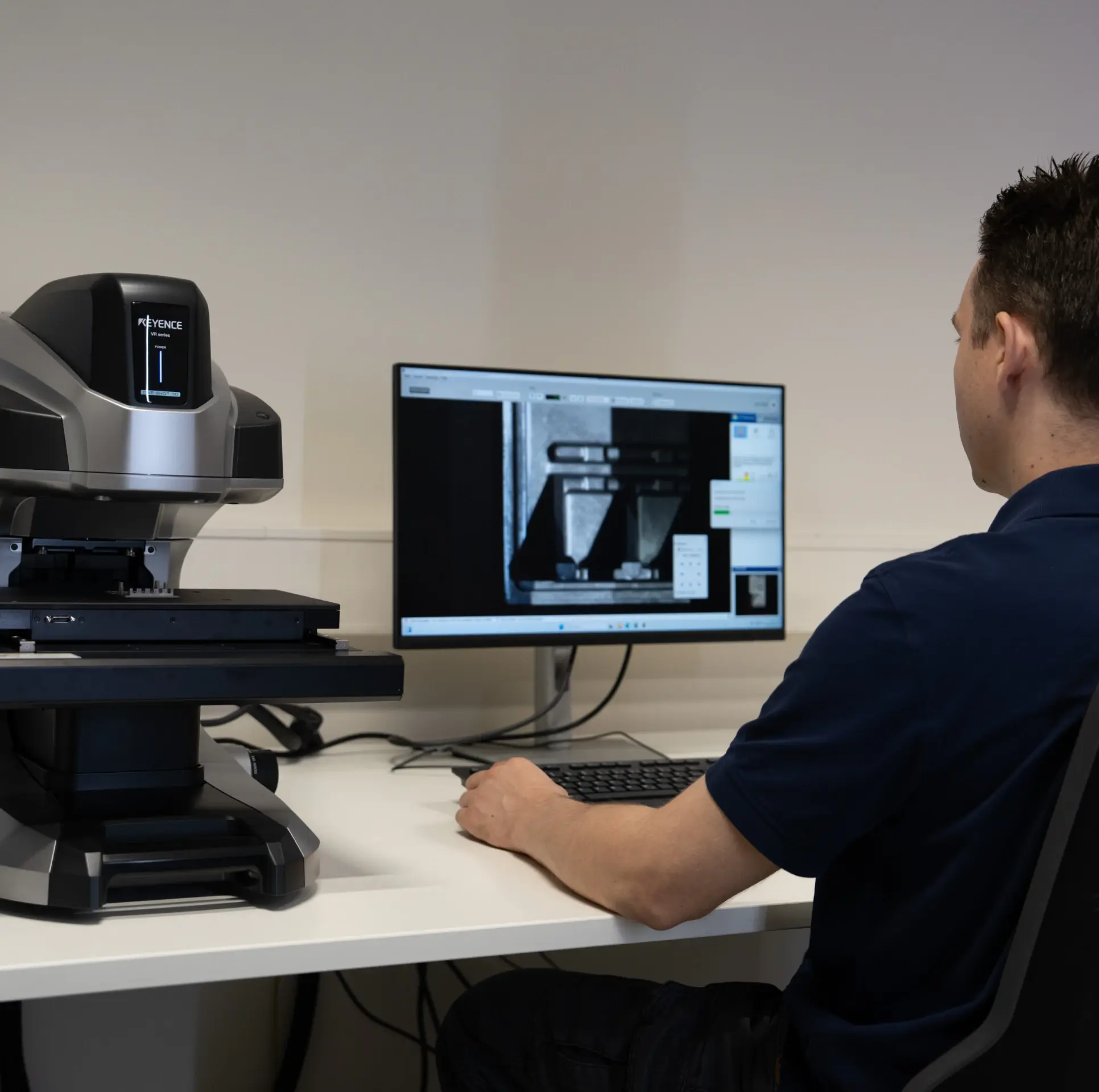
At Panasonic Industrial Devices Europe, electrical tests are performed on individually developed and precisely engineered test benches to ensure that your products maintain their performance characteristics throughout the entire test program. The traceability of measurements, technical expertise, and validity of results are always guaranteed.
We utilize high-precision instrumentation to measure electrical performance under defined environmental conditions, including temperature, humidity, and vibration. This enables us to simulate real-world operating scenarios with high accuracy and reproducibility.
We use a leading-edge high-current test bench with the following features:
Our in-house EMC testing ensures early compliance and smooth certification. With advanced equipment and expert teams, we detect and resolve issues early, enhancing reliability and accelerating launch readiness. Testing covers automotive, industrial, and consumer standards with precise, reproducible results across all key EMC domains.
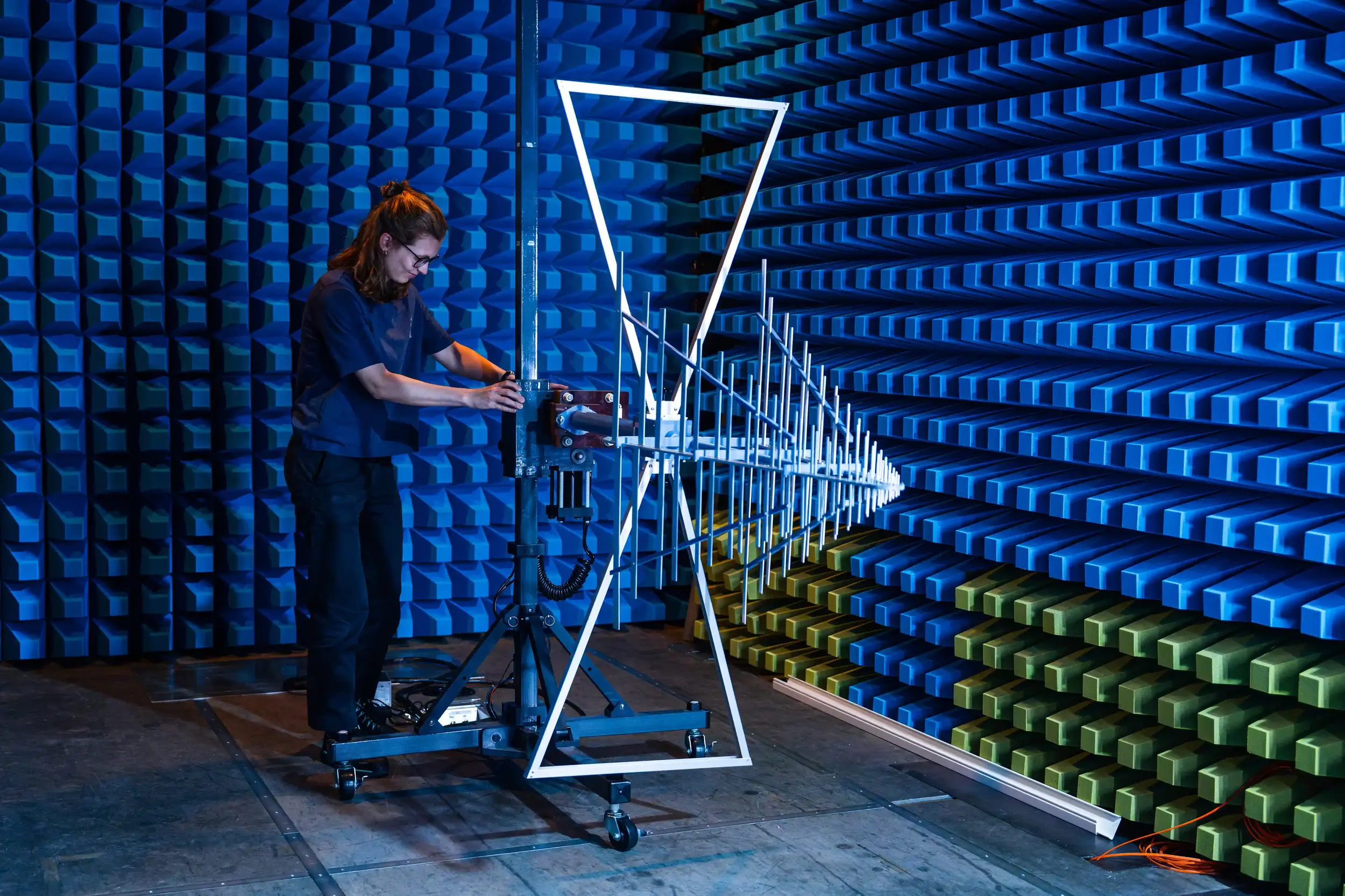
Our high-current test systems are engineered to deliver and control energy levels up to 900kJ, enabling rigorous validation of components under extreme electrical stress. This capability supports testing of pyrotechnical switches, circuit breakers, and high-voltage automotive elements in short-circuit scenarios. With stable discharge profiles and tailored inductance setups, we ensure precise, repeatable results for performance-critical applications in demanding industrial environments.
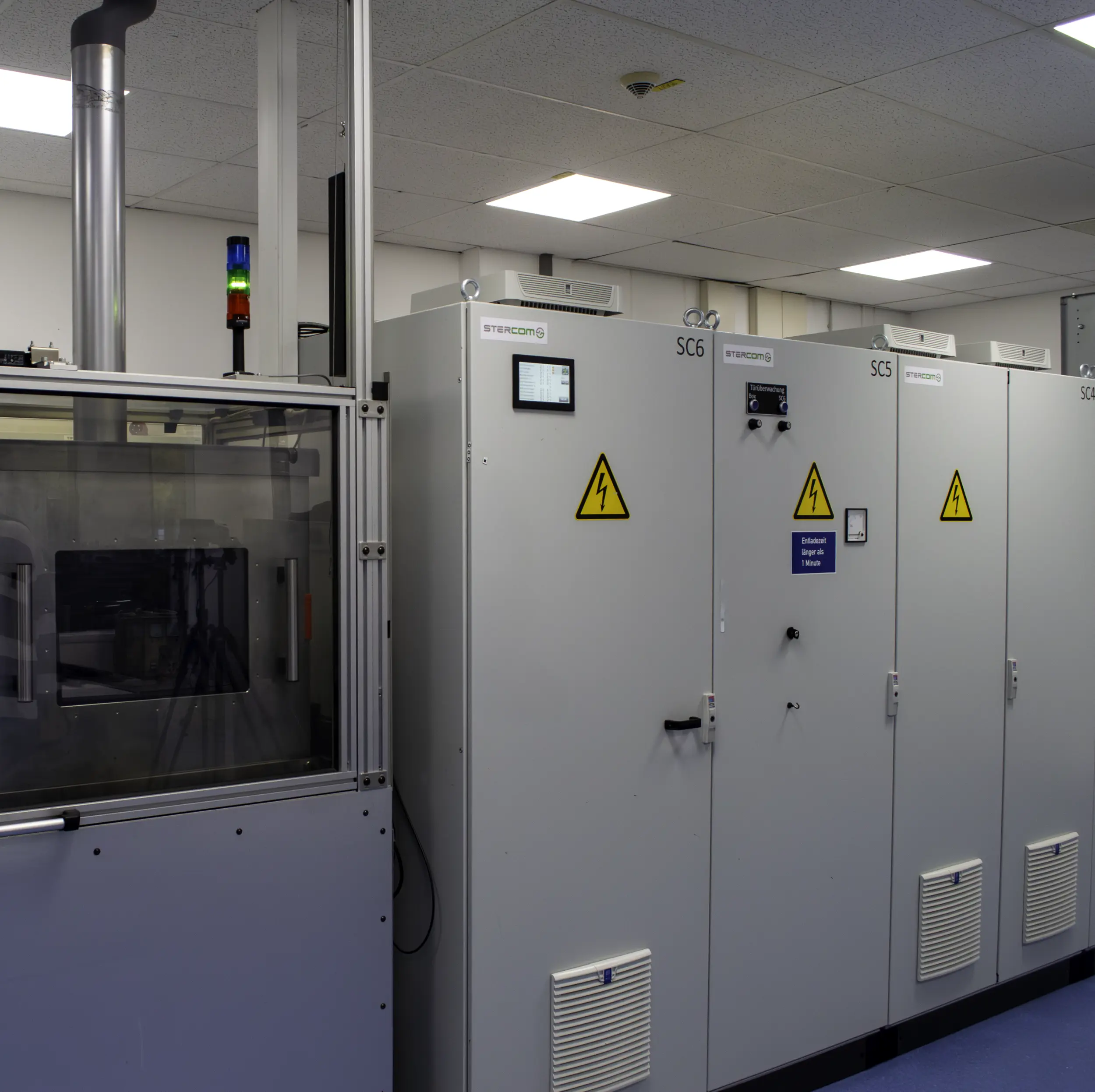
Our test systems are capable of handling extreme current loads up to 40,000 A, enabling precise evaluation of component behavior under high-stress electrical conditions. This capability is essential for validating the robustness of power inductors, circuit protection elements, and pyrotechnical devices. We simulate pulse currents with controlled intervals and thermal profiles, ensuring safe operation and accurate assessment of performance limits, thermal rise, and structural integrity in demanding automotive and industrial applications.
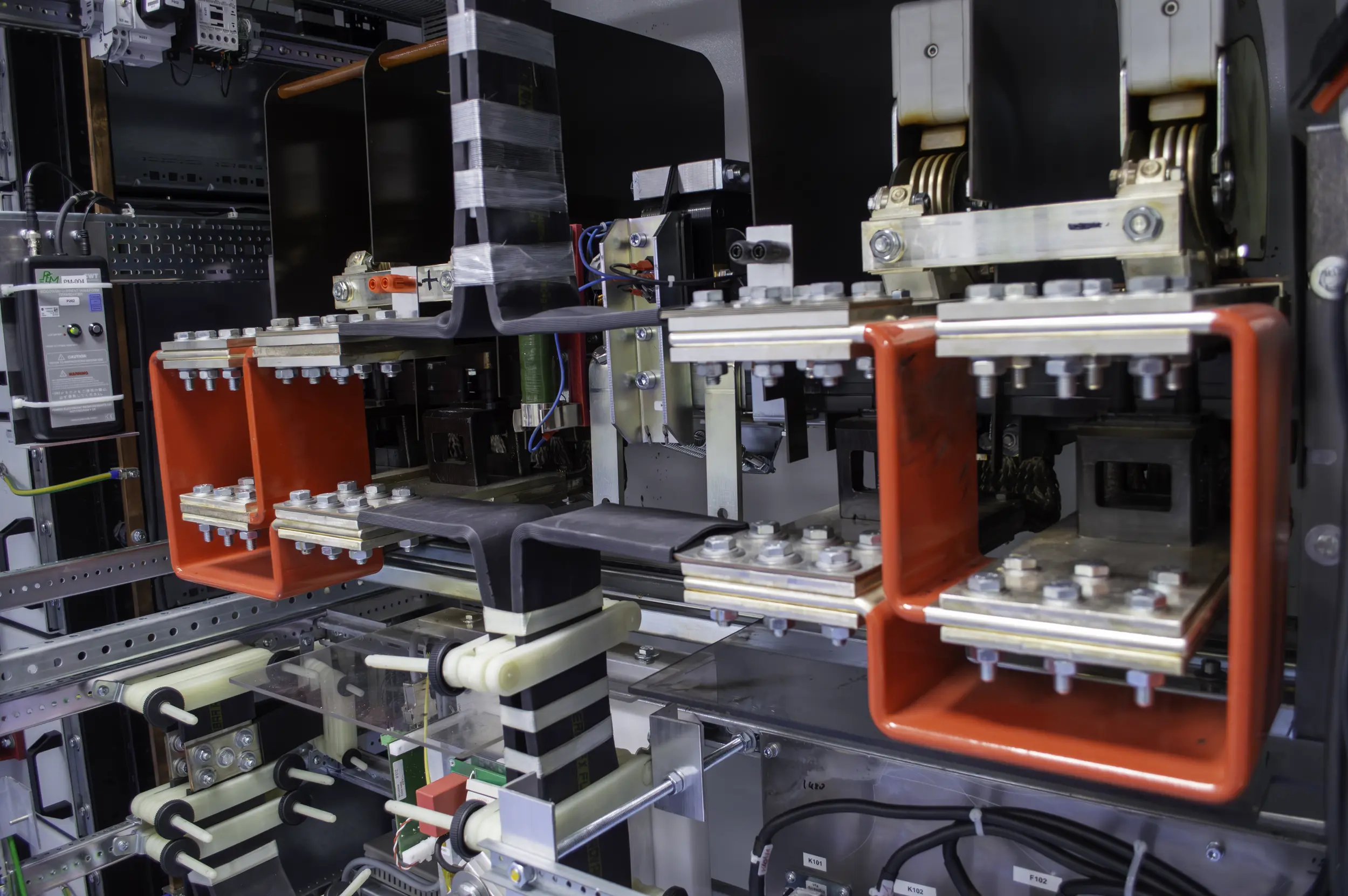
Our systems are engineered to operate safely and efficiently across a wide voltage spectrum—up to 1,000 V. This capability supports high-voltage architectures in electric and hybrid vehicles, enabling reliable energy transfer between traction batteries and auxiliary systems. Whether for onboard charging, DC/DC conversion, or power distribution, our solutions meet stringent safety and performance standards, ensuring robust operation in demanding industrial and automotive environments.
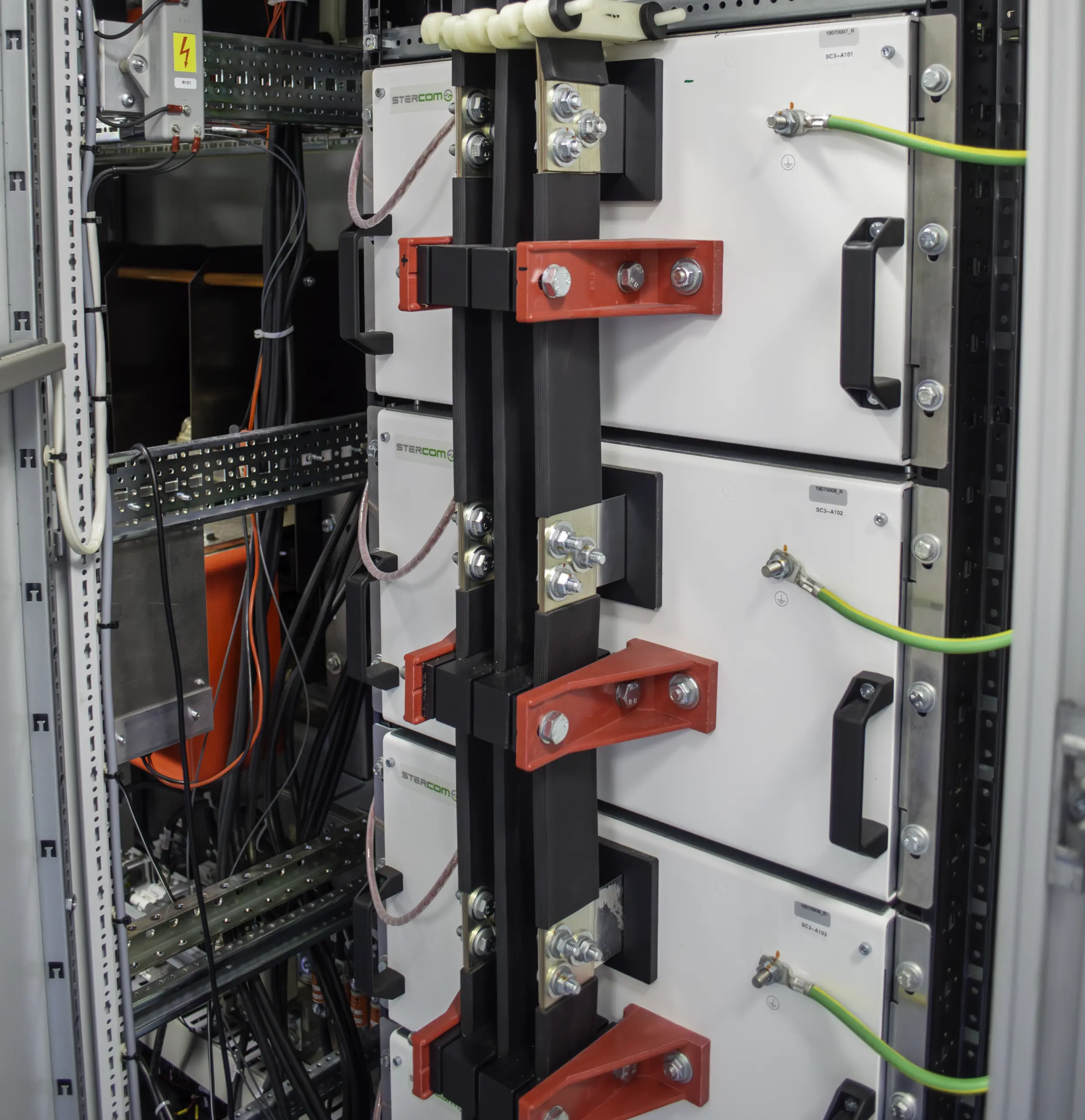
This setup allows us to evaluate the separation capability and current-carrying capacity of components and systems under extreme electrical loads. For detailed post-test analysis, we employ high-speed imaging technology capable of capturing up to 40,000 frames per second, enabling precise failure diagnostics and root cause analysis.
We are also specialized in the testing of Battery Management Systems (BMS) in combination with charging technologies for a wide range of lithium-based batteries. Our expertise includes the diagnosis of charging and discharging cycles under varying temperature and environmental conditions, ensuring compliance with safety and performance standards.
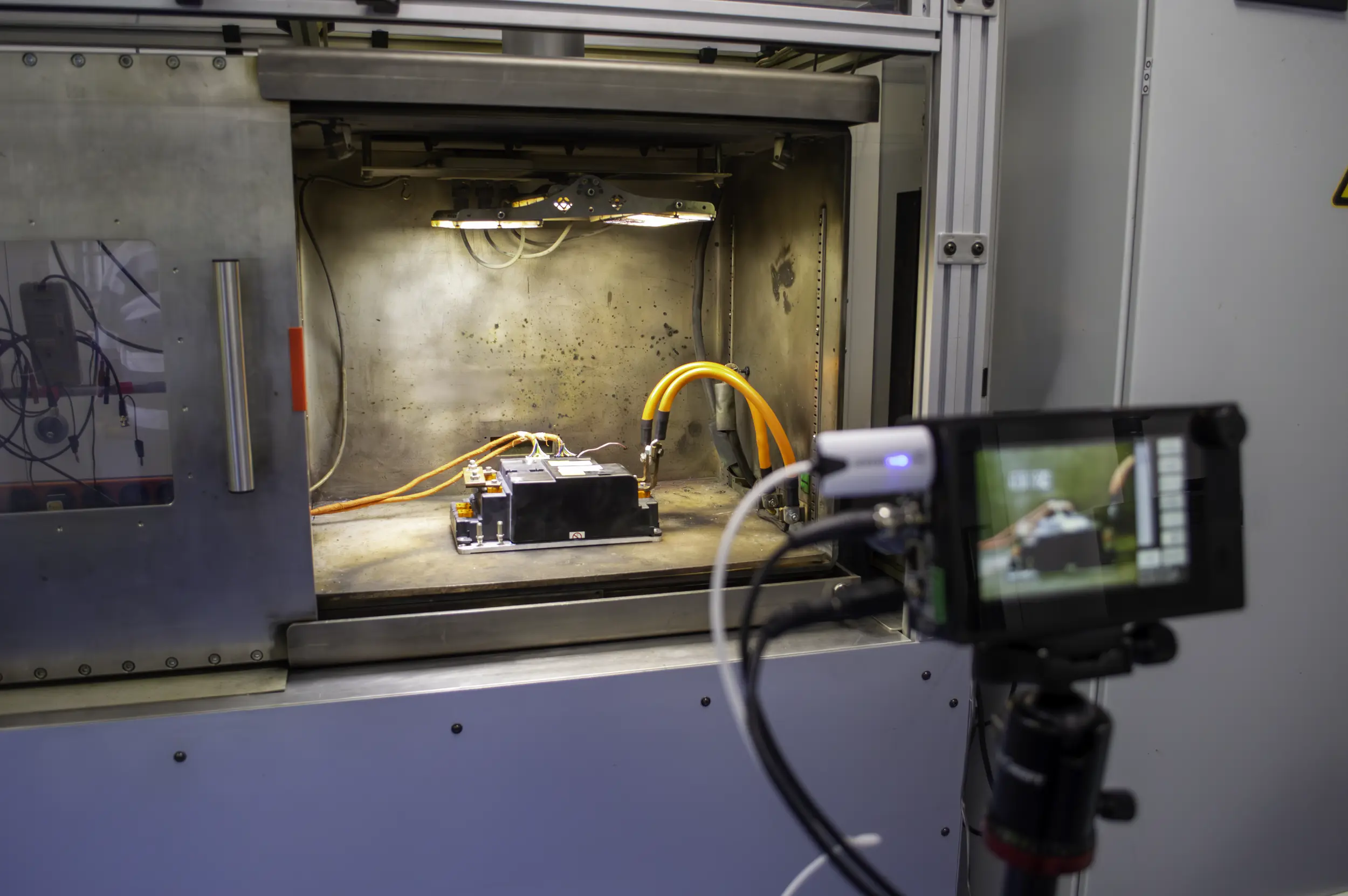
We are also specialized in the testing of Battery Management Systems (BMS) in combination with charging technologies for a wide range of lithium-based batteries. Our expertise includes the diagnosis of charging and discharging cycles under varying temperature and environmental conditions, ensuring compliance with safety and performance standards.
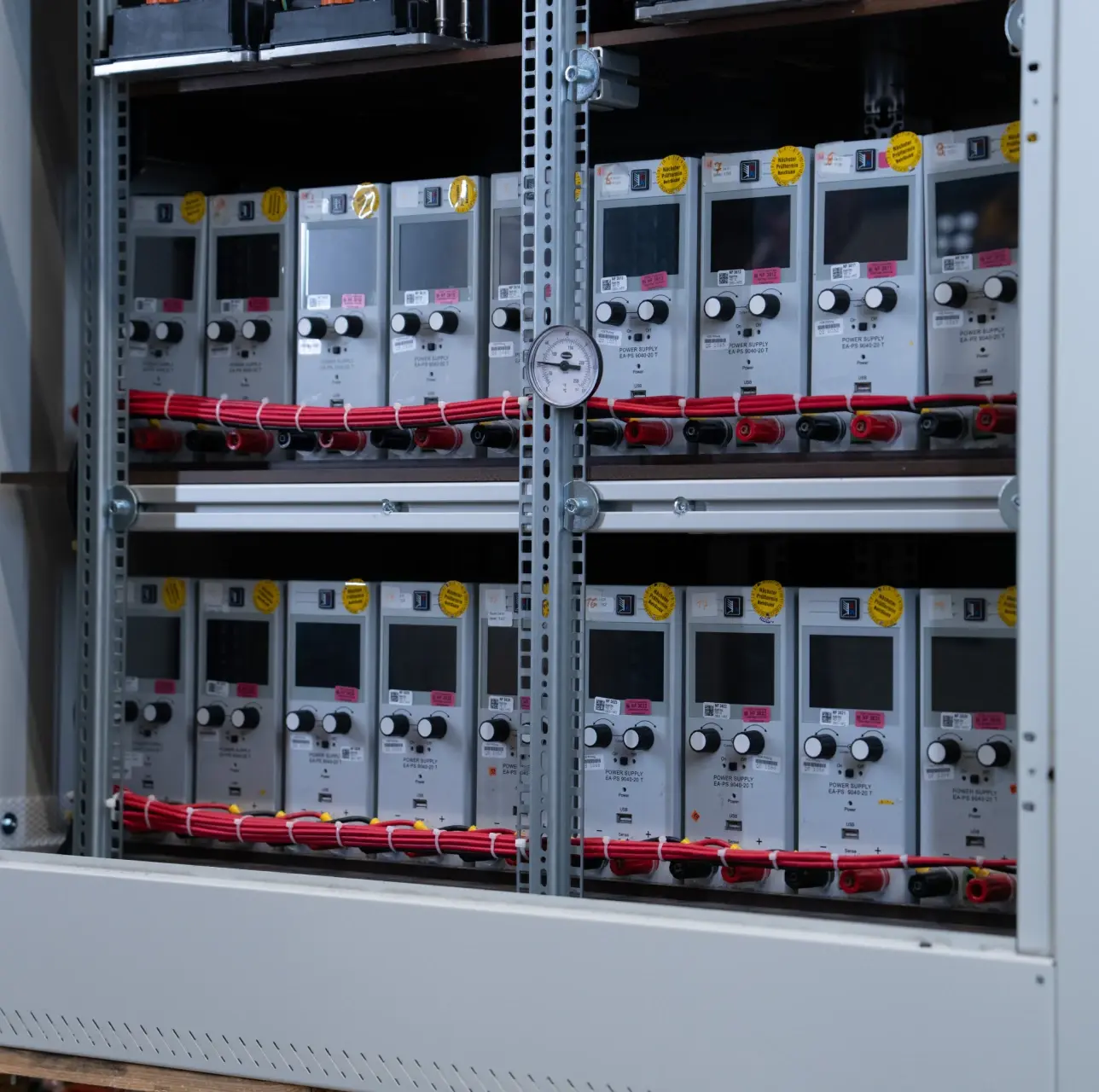
This setup allows us to evaluate the separation capability and current-carrying capacity of components and systems under extreme electrical loads. For detailed post-test analysis, we employ high-speed imaging technology capable of capturing up to 40,000 frames per second, enabling precise failure diagnostics and root cause analysis.
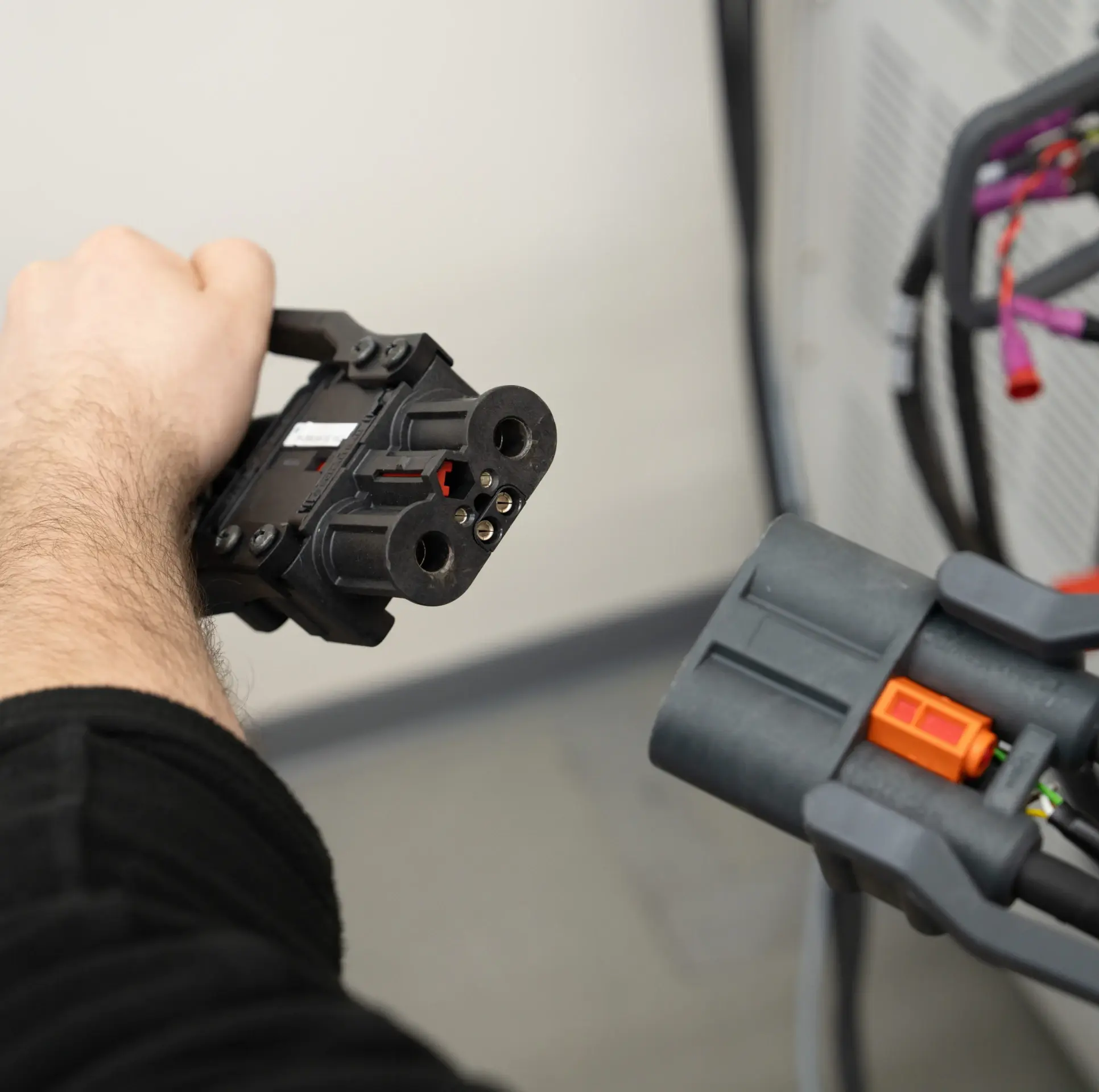
Based on your specific requirements, we design tailored test sequences and scenarios. These are executed in iterative test loops until the desired level of product maturity and reliability is achieved. Our approach ensures that functional validation is not only thorough but also reproducible and traceable.

In addition to professional, reliable evaluation and validation, we are able to advise you in these areas. As your trusted partner, we help address technical challenges and ensure compliance with relevant regulatory and quality standards.
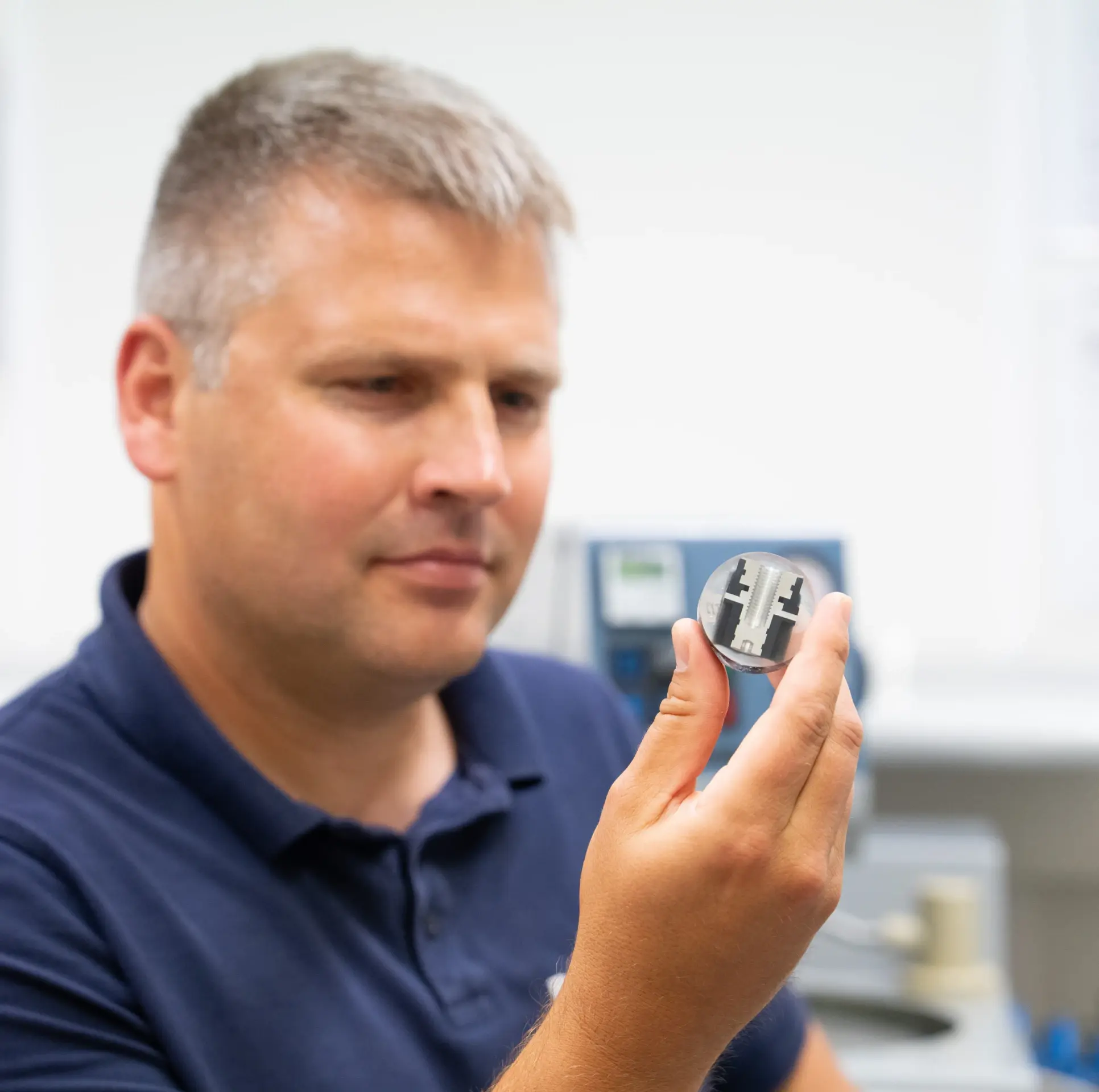

Future-ready testing services – offered by us, for you.
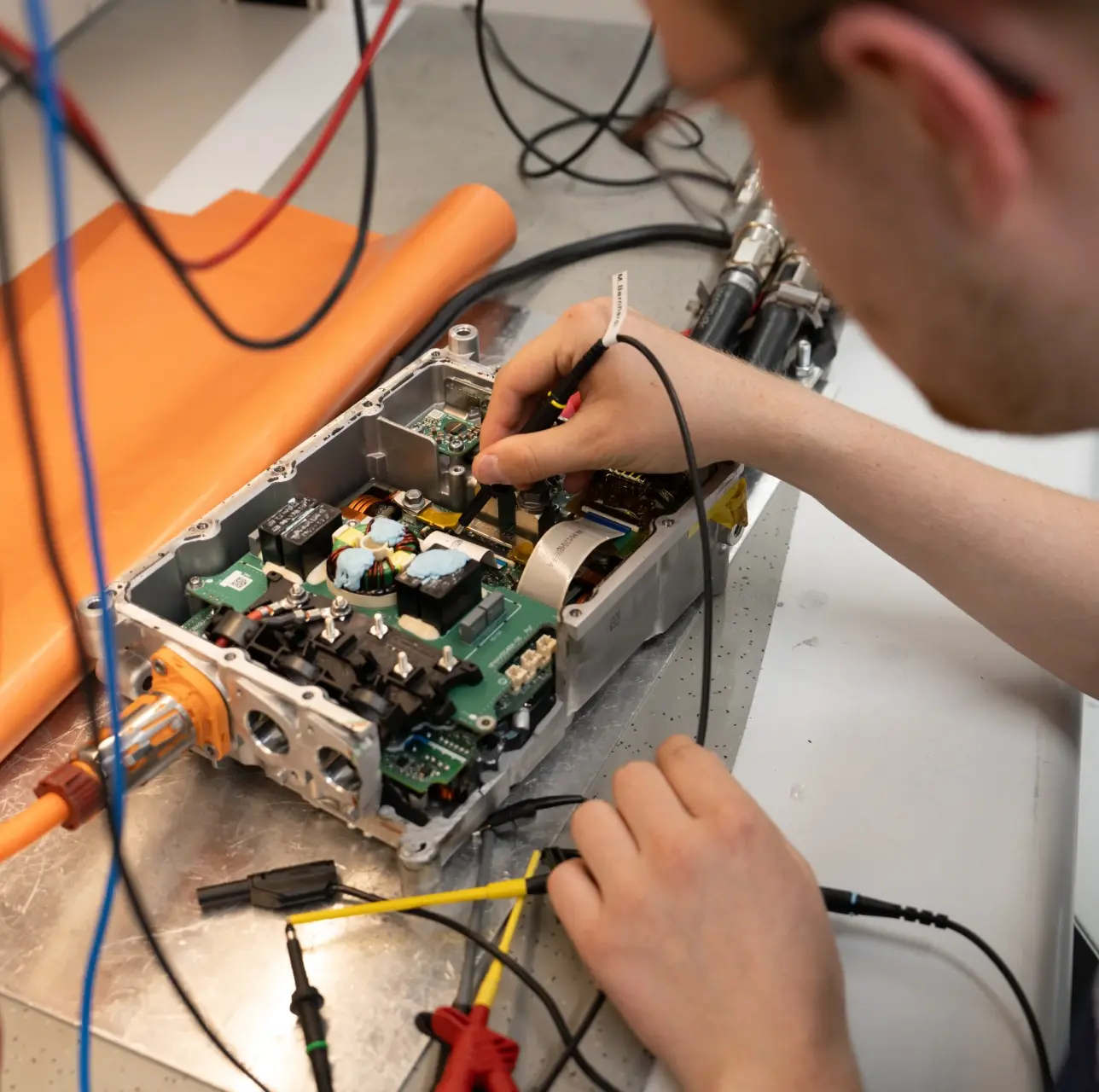
Whether concept validation, prototype optimization, or compliance engineering – we research and develop your solution with precision. For innovative performance and seamless integration into your product lifecycle.
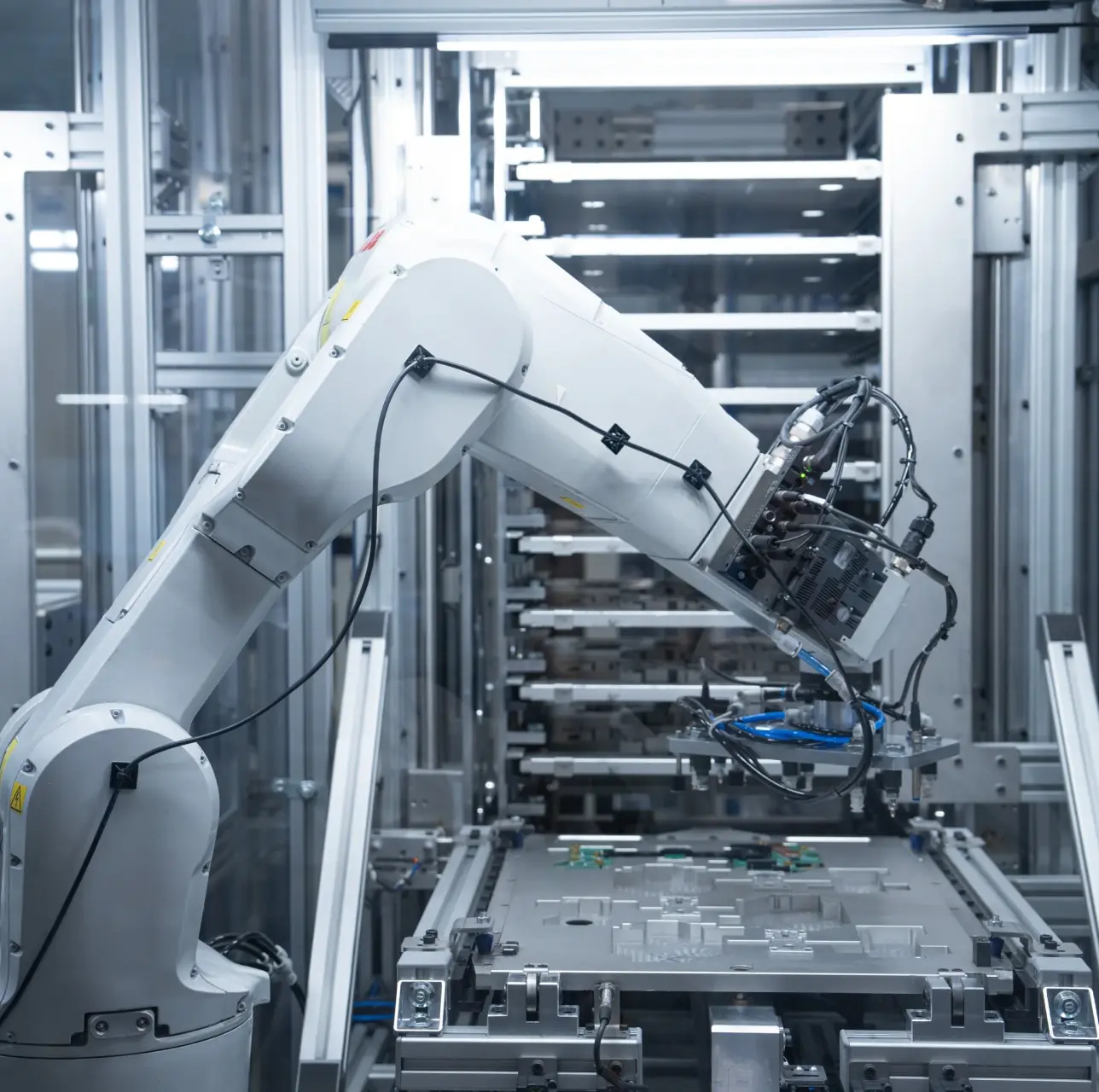
From prototype production to series production: Our manufacturing thinks in systems and delivers quality that works – even in the field.